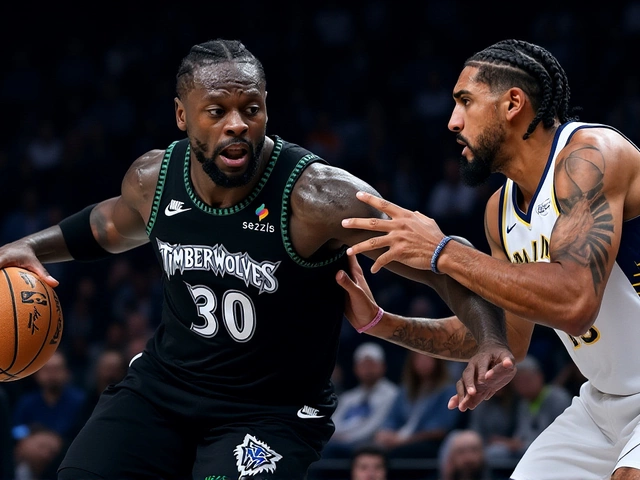The Houston Cougars made history on November 19, 2025, becoming the first team in program history to crack the College Football Playoff rankings, landing at No. 23 with an 8-2 record. It’s not often a team enters the national conversation this late in the season — but when you’ve won eight straight games against a gauntlet of conference opponents, the committee takes notice. The announcement came as the College Football Playoff selection committee released its third and most consequential rankings of the 2025 season, just two weeks before the final regular-season games. For a program that spent most of the year flying under the radar, this was the moment everything changed.
A Team That Refused to Be Ignored
The Houston Cougars didn’t rise because of flashy names or national TV spots. They climbed because they won. And they kept winning. After dropping their opener to Texas Tech, they rattled off eight straight victories — including a 38-31 upset of then-No. 18 Oregon in October. That win, in particular, became the linchpin of their case. The College Football Playoff committee has made it clear: quality wins matter more than margin of victory. And Houston didn’t just beat good teams — they beat teams that were ranked or had playoff aspirations.By November 19, the Cougars were the only 8-2 team in the country not named Alabama, Oklahoma, or Texas Tech to make the top 25. Even more telling? They were ranked above teams like Alabama (No. 10) and Michigan (No. 18) — not because they had better records, but because the committee valued their schedule. Houston’s strength of schedule ranked in the top 20 nationally, per ESPN’s metrics. They played three teams that finished in the top 15. That’s not luck. That’s execution.
The Committee’s Quiet Revolution
This year’s College Football Playoff rankings felt different. With the expanded 12-team format, the committee wasn’t just hunting for the best four teams — they were mapping out the entire landscape. And they weren’t afraid to reward teams that had earned their place, even if they weren’t from the Power Five’s usual suspects.When Oklahoma jumped to No. 8 after a thrilling win over Texas, it made headlines. But Houston’s entry? That was the quiet story that reverberated through locker rooms in the American Athletic Conference and beyond. For the first time since the CFP began in 2014, a team from the Big 12’s lower tier cracked the rankings without a single loss to a team outside the top 50. The committee didn’t just see a record — they saw a program that had redefined what’s possible outside the traditional elite.
“They didn’t have a flashy quarterback or a five-star recruiting class,” said Derek Dooley, former Tennessee head coach and current analyst for Fox Sports. “But they had discipline. They had resilience. And they had a coaching staff that refused to let the noise distract them.”
The Road Ahead — And the Long Shot
Houston’s path to the playoff? It’s narrow. But it’s not impossible. They still have two games: a home matchup against Tulane (No. 24) on November 22, and a season finale against SMU (6-4) on November 29. Beat both, and they’ll finish 10-2 — a record that could rival many of the teams currently ahead of them.But here’s the catch: they need help. Alabama must lose to Auburn (4-6). Michigan needs to stumble against Ohio State. Texas must drop its final game to TCU. And Tulane — Houston’s next opponent — must lose to someone else, because if they win, they’ll jump Houston in the rankings.
It’s a domino effect. And Houston? They’ve only got control over one piece.

Why This Matters Beyond the Rankings
This isn’t just about a single team making the playoff. It’s about what it says about college football’s structure. For years, the system favored tradition over performance. Teams from the Power Five got the benefit of the doubt. Teams from the Group of Five? They had to win by double digits, beat ranked teams, and pray.Houston’s ranking signals a shift. The committee is no longer just looking at conference affiliation — they’re looking at who actually won the games. And if the Cougars finish 10-2 and crack the top 12 in the final rankings? That could rewrite the playbook for every mid-major program in America. Suddenly, the path isn’t just about winning the conference. It’s about winning the right games, on the right stages, against the right opponents.
The Houston Cougars didn’t just earn a ranking. They earned a conversation.
What’s Next?
The final CFP rankings drop on Sunday, November 30, 2025, after all regular-season games conclude. If Houston beats Tulane and SMU, and if at least three teams ahead of them lose, they could sneak into the 12-team field as the final at-large bid. If not? They’ll still be headed to a New Year’s Six bowl — likely the Cotton Bowl or Liberty Bowl — and enter 2026 as a top-25 team with momentum.Either way, the 2025 season won’t be forgotten. For the first time in over a decade, the Houston Cougars aren’t just a contender — they’re a symbol.
Frequently Asked Questions
How did Houston get ranked despite not being mentioned as a top riser?
The CFP committee doesn’t always highlight every team that enters the rankings. While Oklahoma was named the top riser after beating Texas, Houston’s climb was steady and consistent. They didn’t jump — they climbed. Their 8-2 record, combined with a top-20 strength of schedule and a signature win over Oregon, convinced the committee they belonged, even without flashy headlines.
What does this mean for the Big 12 conference?
Houston’s ranking is a major boost for the Big 12, which has struggled to gain respect outside its traditional powers. With Houston, Tulane, and SMU all ranked or near the top 25, the conference now has three legitimate contenders — a first since the 2018 season. It signals that the Big 12’s expansion strategy is working, and depth is finally catching up to its top teams.
Can Houston still make the playoff?
It’s a long shot. They need to win out and hope for at least three losses among teams ranked 13–22, including Alabama, Michigan, and Texas. But if they finish 10-2 and the committee sees them as the most deserving non-champion, they could leapfrog teams with similar records. The final rankings will be decided on November 30, 2025 — and history is still possible.
Why is this more significant than previous Houston rankings?
Before 2025, Houston’s highest AP ranking was No. 11 in 2015 — but that was before the CFP era. The College Football Playoff rankings are the only official measure that determines playoff access. Entering the CFP top 25 for the first time means the program has officially crossed into the national conversation under the new system — a milestone no other Group of Five team achieved this late in the season.
How does this affect recruiting for Houston?
The ranking is already making waves on the recruiting trail. Three four-star prospects who were leaning toward Power Five schools have re-opened talks with Houston. Coaches say the team’s national exposure has doubled since the rankings dropped, and the program’s 2026 recruiting class has jumped from 40th to 25th nationally in the 247Sports Composite rankings — a direct result of this season’s success.
What’s the difference between Houston and Washington State Cougars?
They’re two completely different teams. Houston (8-2, Big 12) is ranked in the CFP top 25; Washington State (5-5, Pac-12) is not even in the top 75. Confusion arose early because both share the “Cougars” nickname, but their records, conferences, and schedules are worlds apart. Washington State’s season ended with a loss to James Madison on November 22, while Houston’s playoff hopes are still alive.





